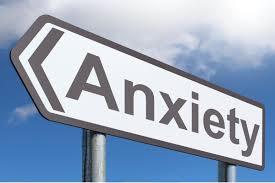Drinking coffee is a daily ritual for many, but this practice may have more impact on your health than you realize. In this comprehensive guide, we’ll explore the various effects of this habit, backed by scientific evidence and expert opinions. Whether you’re a casual coffee drinker or a caffeine aficionado, this article Does drinking coffee on an empty stomach cause anxiety ? is a must-read to understand how your morning cup can affect your body and overall well-being.
Is Drinking Coffee on an Empty Stomach Harmful?
The claim that drinking coffee, particularly on an empty stomach, can have diverse effects of drinking coffee on different people. For some people, drinking coffee on an empty stomach doesn’t cause any noticeable problems, but for others, it can result in discomfort or potential health risks.
How Does Coffee Affect Stomach Acid and Digestion?
Contrary to popular belief, coffee may not significantly increase stomach acid production. It can relax the lower esophageal sphincter, potentially leading to acid reflux or heartburn. Drinking coffee without food might exacerbate these symptoms, as there’s no buffer for the acid.
Can Morning Coffee Influence Blood Sugar Levels?
Drinking coffee can affect blood sugar levels, particularly on an empty stomach. Caffeine can temporarily increase blood sugar levels, making it a point of consideration for individuals with conditions like type 2 diabetes.
Does Coffee Intake Cause Indigestion and Acid Reflux?
For those prone to digestive issues, coffee intake, especially on an empty stomach, can exacerbate symptoms like indigestion and acid reflux. The acidic nature of coffee can irritate the stomach lining, leading to discomfort.

Understanding Cortisol Levels: Coffee’s Impact on Stress Hormones
Coffee stimulates cortisol production, a stress hormone produced by your adrenal glands. Drinking coffee first thing in the morning, when cortisol levels are already high, can lead to heightened anxiety or jitteriness.
Are There Risks of Drinking Coffee First Thing in the Morning?
Drinking coffee first thing in the morning can increase cortisol levels and potentially disrupt your body’s natural circadian rhythm. It’s recommended to wait until cortisol levels naturally decrease before consuming your morning cup.
Coffee Consumption and Digestive Issues: What’s the Link?
Regular coffee consumption can lead to or worsen digestive issues like irritable bowel syndrome. The link between coffee and digestive health is complex and depends on individual sensitivities and overall diet.
Can Coffee Increase Anxiety ?

Yes, coffee can increase anxiety in some individuals. This effect is primarily due to caffeine, the active stimulant in coffee. Caffeine can have several impacts on your body that may contribute to feelings of anxiety:
Stimulation of the Nervous System: Caffeine stimulates the central nervous system, which can lead to increased alertness. It does this by blocking the effects of adenosine, a brain chemical that makes you feel tired. At the same time, it triggers the release of adrenaline, the “fight-or-flight” hormone associated with increased energy. In sensitive individuals, this can lead to feelings of nervousness or anxiety.
Increased Heart Rate: Caffeine can also cause an increase in heart rate, which can be perceived as palpitations. For some people, this can mimic the symptoms of anxiety or panic attacks.
Impact on Sleep: Consuming coffee, especially in the afternoon or evening, can disrupt sleep patterns. Poor sleep can affect mood and is a common trigger for anxiety.
Psychological Factors: For some people, the ritual of drinking coffee, particularly in a high-stress environment like a busy workplace, can be associated with increased levels of stress and anxiety.
Individual Sensitivity: People’s sensitivity to caffeine varies. Some may experience anxiety with even small amounts of caffeine, while others may consume larger quantities without any adverse effects.
The relationship between caffeine and anxiety can be complex and is influenced by individual tolerance, psychological factors, and the presence of any pre-existing anxiety disorders. If you find that caffeine seems to exacerbate your anxiety symptoms, it may be helpful to reduce your intake or consult with a healthcare professional for personalized advice.
Debunking Myths: When Drinking Coffee is Bad for Your Health
While coffee has many health benefits, it’s essential to debunk myths and understand circumstances where it might be harmful. Drinking too much coffee or consuming it on an empty stomach can lead to negative side effects for some individuals.
Healthy Coffee Habits: Maximizing Benefits and Minimizing Risks
To enjoy coffee healthily, consider consuming it after a meal, choosing lower caffeine options, staying hydrated, and being mindful of your overall intake.
Conclusion
- Coffee’s impact varies based on individual sensitivity and consumption habits.
- Moderation and understanding your body’s response to caffeine are key to enjoying coffee healthily.
- Incorporating healthy coffee habits can maximize benefits and minimize potential risks.
Q: Is it true that consuming coffee on an empty stomach can affect hormone levels?
A: Yes, consuming coffee on an empty stomach can stimulate cortisol, which may impact hormone levels and lead to jittery feelings.
Q: Can drinking coffee on an empty stomach cause health issues?
A: Yes, evidence suggests that drinking coffee on an empty stomach may cause health issues such as bloat, heartburn, and digestive discomfort.
Q: Why is coffee consumption on an empty stomach particularly concerning in the early morning?
A: Experts say that drinking coffee as the first thing in the morning on an empty stomach is probably one of the reasons why coffee can have adverse effects on the body.
Q: Why is coffee consumption and ulcer formation a concern
A: Coffee is generally known to irritate the stomach, and drinking it on an empty stomach may potentially contribute to conditions such as ulcer formation.


Leave a Reply